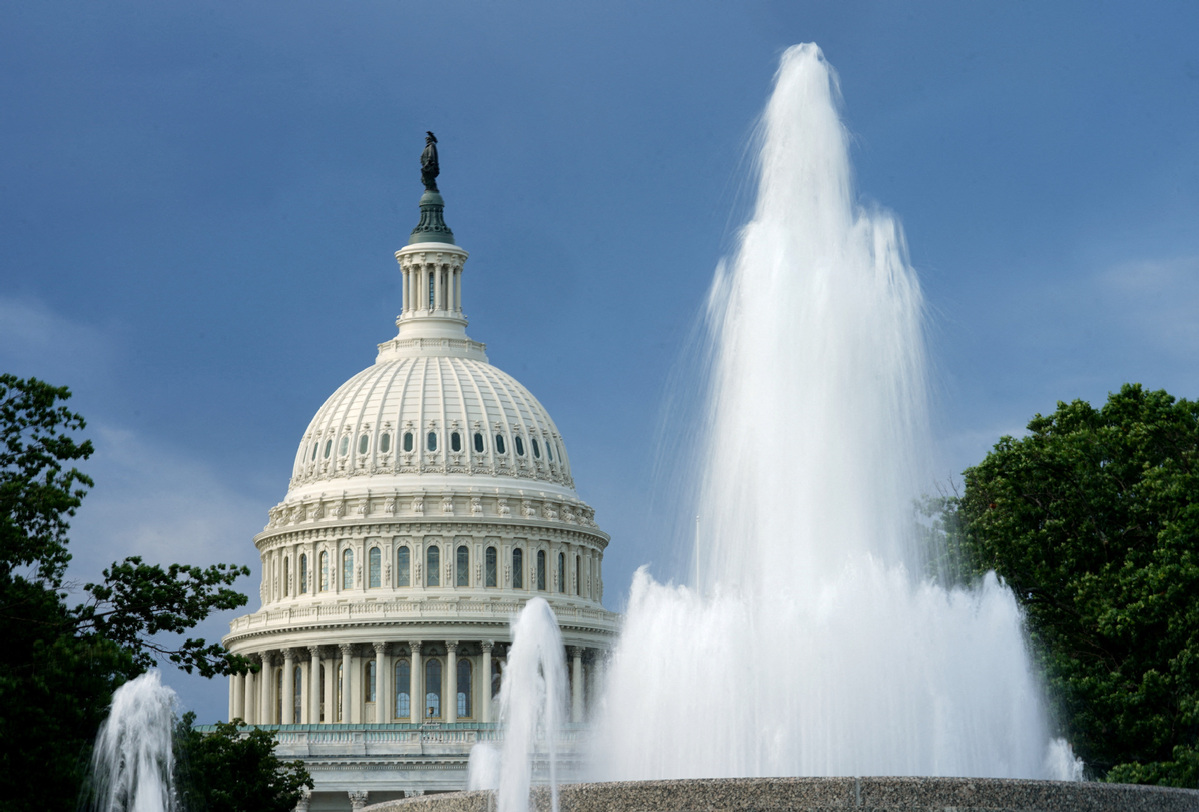
The dome of the US Capitol is seen beyond a fountain in Washington, US.
While the international community has looked forward to the world's largest economy and major trader in both goods and services implementing inclusive pro-trade measures to boost a balanced global recovery, the US has done the opposite by implementing discriminatory and distorting trade subsidy measures.
The measures the US will take under the Inflation Reduction Act constitute grave violations of the general principles of the World Trade Organization and relevant international laws, and disrupt the global industry, supply and value chains.
According to the act, the US will provide up to $369 billion in subsidies to support production and investment in electric vehicles, key minerals, clean energy and power generation facilities, with as many as nine tax breaks conditional on production and sales in the US or the rest of North America.
These are unequivocally discriminatory provisions that breach the WTO's basic principles of most-favored-nation treatment and national treatment. They constitute de facto import substitution subsidies and trade-related investment restrictions prohibited by the WTO. All these moves will benefit the US at the cost of seriously distorting global trade and the investment in relevant industries.
That's why these articles have been questioned and criticized by almost all countries since they were announced and why the act was the focus of discussions at a meeting of the Council for Trade in Goods of the World Trade Organization, held in Geneva last week.
There is no doubt that these policies will trigger a beggar-thy-neighbor subsidy race, increase the risk of trade frictions among WTO members and undermine global efforts to tackle climate change.
These policies show that it is the US that is the rule-breaker. The US is not only violating WTO rules by weaponizing "national security" concerns and abusing export controls. It is also using "long-arm jurisdiction" to force other members to comply with its policies in violation of WTO rules. In doing so, it is pushing unilateralism to the extreme, seriously violating the basic principle of state sovereignty in international law, and is holding the rest of the world to ransom.
As urged by almost all other countries, including China, the US should abide by WTO rules and remove the discriminatory and distortive elements of the act, and honor the commitments it has made at the G20 Summit in Bali, Indonesia, and the Climate Change Conference in Sharm El-Sheikh, Egypt, this month, as well as its pledges that its policies on trade, industries and climate change should accord with WTO rules.
Its trade war, technology war and "wall building" and "decoupling" efforts will lead the world, including itself to ruin. The US should correct its wrong practices as soon as possible and work with other countries to maintain the stability of world supply chains and promote a global recovery.


